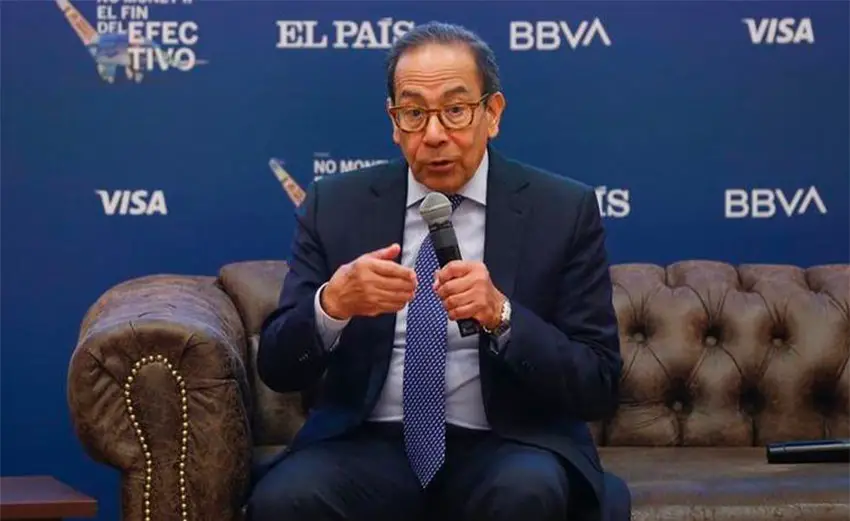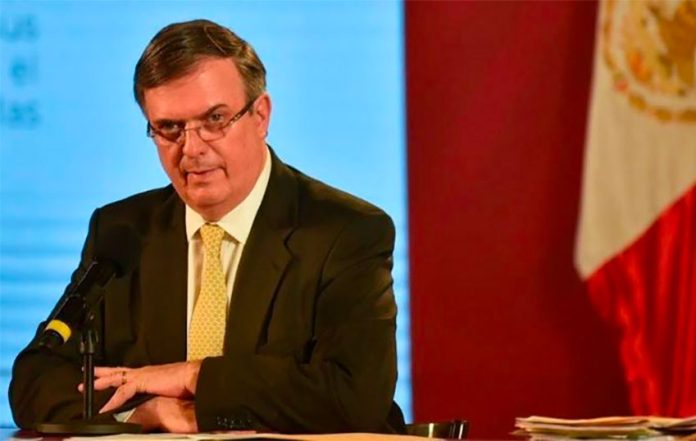Employers who don’t pay their workers their full wage during the one-month health emergency declared by the federal government on Monday or fail to follow the instruction to close their businesses will face fines and could even go to jail.
Foreign Affairs Minister Marcelo Ebrard also announced Monday night that employers cannot dismiss their workers as a result of the government’s decision to order the suspension of all nonessential public, private and social sector activities until April 30.
“[With regard to] the protection of workers – their wages cannot be taken away from them this month, according to the law,” Ebrard said.
In addition to breaking the law, businesses that dismiss workers or reduce their salaries will “destroy” their capacity to operate in the future because they will be left without the knowledge and skills they require, he said, charging “it’s almost like suicide.”
The foreign minister explained that businesses that don’t pay their employees their wages in full, dismiss workers or continue to operate even though they don’t offer a service that is considered essential will face “administrative sanctions” such as fines or closures.
If a non-essential business continues to operate, obliges employees to go to work and as a result one or more person is infected with Covid-19, the business could face “criminal responsibilities,” Ebrard said.
“In general, those who oppose [the order to close] and continue with their [business] activities despite this prohibition will be deserving of administrative sanctions that range from closure of the business to the imposition of a fine,” the foreign minister said, adding that in more serious or “very extreme” cases, criminal courts could hand down harsher penalties.
“We’re appealing to … the social conscience we have. The process we are going through … is equivalent to the earthquake we had in 1985,” Ebrard said referring to the temblor that killed thousands of people in Mexico City.
“We’ve gotten through [in the past] and we will get through this because we’re acting on time and with force,” he said.
Speaking at his morning news conference on Tuesday, President López Obrador also called on the private sector to comply with the order to pay salaries in full and urged employers not to attempt to fight it in court.
“There is no need to go to court,” he said, imploring employers to keep paying regular salaries out of humanism, solidarity and fraternity.

“In terms of the legal issue, it’s a matter of interpretation. In a reform that was made to the Federal Labor Law it was established that in the case of a health emergency, the minimum salary can be paid for a month but there is a regulation in the same law that establishes that it is the full salary” that must be paid, López Obrador said.
“I’m also asking the business leaders to keep helping us. … [Business magnate] Carlos Slim [said] that he wasn’t going to dismiss any worker, that’s the example to follow,” he added.
In response to the government’s health emergency declaration and the measures it entails to limit the spread of Covid-19, the Business Coordinating Council (CCE) urged the López Obrador administration to allow greater flexibility in the payment of taxes.
The influential business group presented a series of recommendations in a statement that warned that the quarantine ordered by the government threatens businesses’ capacity to survive.
The CCE stressed that it is “not asking for any kind of tax reduction” but said that it was urgent that the federal government issue a decree that stipulates that both individuals and business can defer the lodging of their 2019 tax declarations for a period of six months.
It also said that businesses and individuals should be automatically exempt from having to make provisional tax payments in 2020. Once taxes for this year become payable, taxpayers should be permitted to settle their obligations in 12 installments, the CCE said. The business group also said that authorities should expedite tax refunds to those who have a credit.
“These measures will allow businesses to have the minimum liquidity necessary … to preserve sources of employment,” the CCE said.
López Obrador said last week that the government would provide interest-free or low-interest loans to 1 million small businesses to help them weather the coronavirus storm, stressing that the aim was to support the neediest.
He ruled out any possibility of waiving taxes for large companies and said that there wouldn’t be any “rescues” for banks and corporations as occurred in the “neoliberal period,” a term he uses to describe the 30 years before he came to power in late 2018.
Source: El Economista (sp), Reforma (sp), Milenio (sp)
